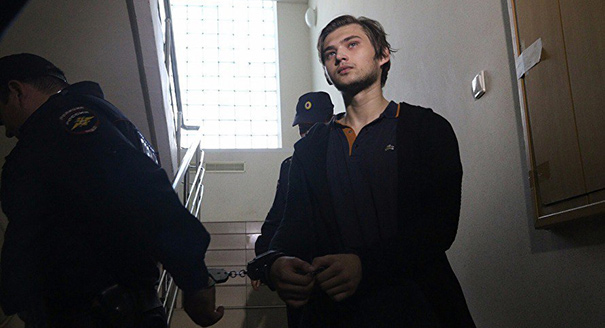In contemporary Russia, expressing anti-religious views is now the equivalent of what was called “anti-Soviet activities” twenty-five years ago.
Alarming evidence of this new reality came with the news on September 2 that Ruslan Sokolovsky, a twenty-two-year-old video blogger from Yekaterinburg, had been given a two-month prison sentence for playing Pokémon Go in an Orthodox church and putting out vocally anti-religious videos. Sokolovsky was accused of extremism and “offending the feelings of believers” (an article that was recently added to the Criminal Code and used to imprison members of the punk rock music group Pussy Riot).
The press secretary of the regional Interior Ministry directorate, Valery Gorelykh, had jumped the gun and, without waiting for the court ruling, had declared indignantly that people who play Pokémon Go in “holy places” should go to prison for five years and not three.
By punishing the young blogger, the Russian state moved one step toward being an ideological theocracy. It was striking out at a young man who was abiding by his constitutional rights to freedom of speech, freedom of religion, and freedom to not have a religion, as well as by the principle of the separation of church and state. In May this year the head of the Russian Orthodox Church, Patriarch Kirill, had already made clear his sentiments toward the constitutionally protected concept of human rights when he condemned what he called the “heresy” of some human rights.
The “feelings of believers” are now privileged in Russia, but not the feelings of atheists, who might be offended, for example, when regional administrations demand that government employees contribute money “voluntarily” for the construction of churches. This is just one example of how the church and the state now unite in joyful harmony—in violation of the Constitution.
The establishment of the Russian Orthodox Church is gradually taking on the functions of the state, and the security arm of the state is protecting the Orthodox establishment. Long ago in world history, church law was inseparable from secular law. The Kirov district court in Yekaterinburg, which arrested Sokolovsky, effectively returned Russia to the Middle Ages by using secular law as church law.
As a result of this case, Pokémons have unwittingly become a litmus test for freedom in Russia and turned into symbols of anti-state activities.
In contrast to the Orthodox Church, in July this year the Grand Choral Synagogue in St. Petersburg awarded a successful Pokémon hunter a bottle of kosher wine. The synagogue is a holy place, too, correct? But no one was insulted and no one was arrested.
Apparently, the vengeful Old Testament god of the Jews is more merciful than the god worshipped in the harmonious Russian Orthodox Church. This has nothing to do with insulting anyone’s feelings. This is a sign of whether a particular religious establishment lives in the modern world or in the Middle Ages.
An arrest like this was possible because, since June 2012, Russia has passed more than 30 laws that expand the authority of law enforcement bodies and restrict the rights of the civil society. But the main point here is that an atmosphere of intolerance has been cultivated in Russia in recent years in which politicians can be assassinated and young people who stand up for their personal values can be jailed. A culture of denouncing others to the state has not yet returned fully in Russia, but it inevitably will, because it has become an instrument of state policy, the way it was for many decades of the country’s history.
Denunciations are rewarded and exploited by the state. When the Anti-Maidan Movement wrote a denouncement of an independent polling organization, the Levada Center, the Ministry of Justice acquiesced and conducted a probe into the center—which has now been declared a “foreign agent” under new legislation. The blogger Sokolovsky was arrested after a journalist from the Ura.ru online portal proposed an investigation as to whether his activities violated the feelings of believers. The Ura.ru journalist was not just doing his job; he was snitching.
There is a clear message in Sokolovsky’s story: if you openly express atheist views, you can now end up in jail. Sokolovsky is defenseless before the church-and-state behemoth. The Russian Orthodox establishment has mostly kept silent, although priests in Yekaterinburg have offered to teach the video blogger about the errors of his ways. The political class is also silent—it is deathly afraid of people such as Sokolovsky, imagining each of them to be the personification of the revolutionary Maidan phenomenon.
The most that the young blogger can be thankful for is that one church official, Vladimir Legoida, speaking on behalf of the Moscow Patriarchate, explained that the Russian Orthodox Church “is not out for blood.”



